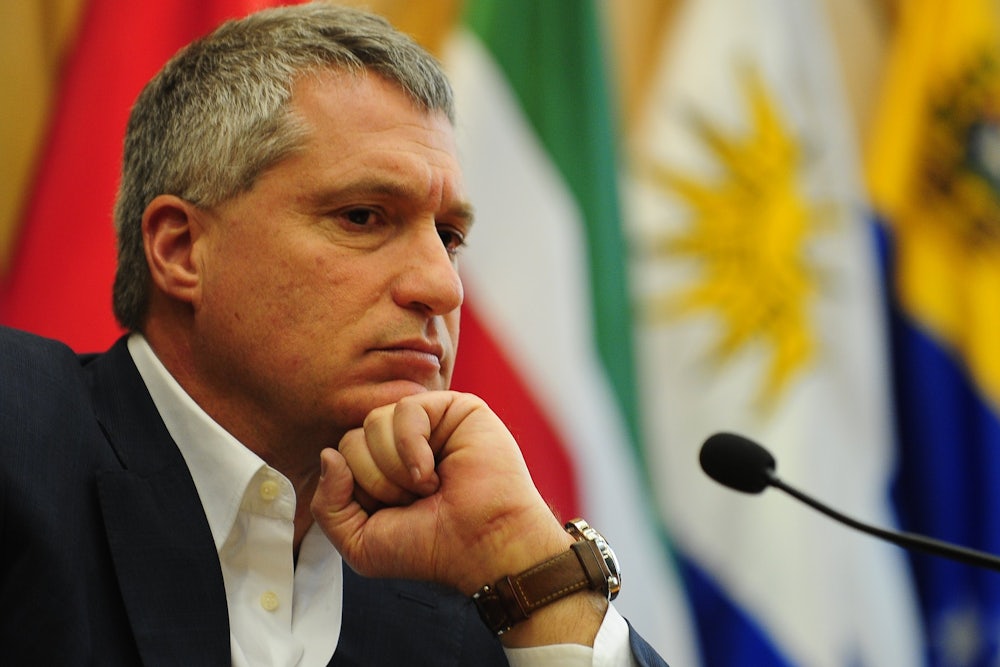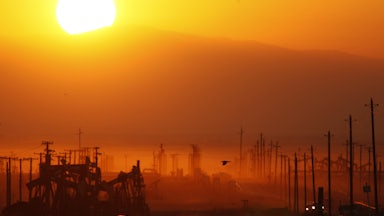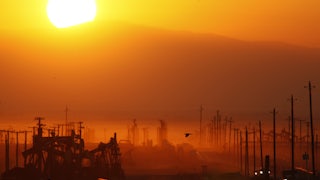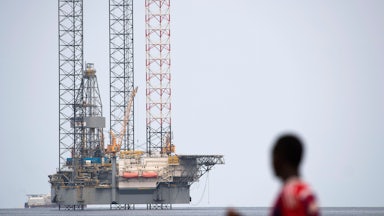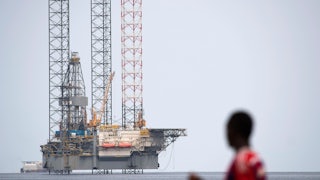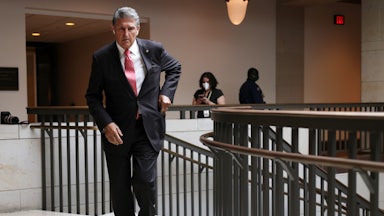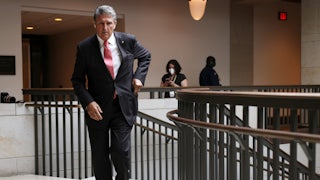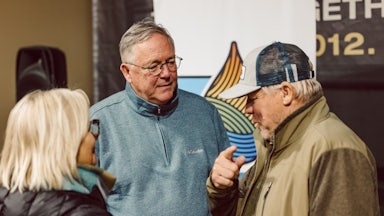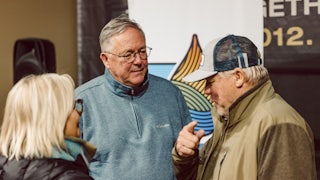Lawyer Steven Donziger was sentenced to six months in prison today, after being found guilty on several counts of misdemeanor criminal contempt in July. Donziger, who won a major suit against the oil giant Chevron in Ecuador in 2011, has been under house arrest since August 2019—well over the length of his sentence, which is the longest he can be imprisoned for the charges against him. Just yesterday, the United Nation’s Working Group on Arbitrary Detention ruled his house arrest was “arbitrary” and a violation of the International Covenant on Civil and Political Rights, arguing for his release. The U.N. is right. Donziger should be free.
The case that Donziger brought in Ecuador against Texaco—now Chevron—resulted in the company being made to pay out $9.5 billion for the decades it spent dumping oil waste onto Indigenous ancestral lands in the Amazon. But the convoluted proceedings did not stop there. The company vowed revenge or, more specifically, in the words of a spokesperson, to “fight this until hell freezes over. And then we’ll fight it out on the ice.” Chevron pledged privately to “demonize” Donziger and in 2010, before Ecuadorian courts ordered the company to pay, brought a case in the U.S. District Court for the Southern District of New York against the plaintiffs, their lawyers, the NGO representing the affected communities, and experts who had aided in their defense. Chevron then pushed to invalidate the 2011 ruling and charge Donziger with racketeering. Chevron’s key witness against Donziger has recanted his testimony, having allegedly been paid off by Chevron’s lawyer and private investigator.
The judge who sentenced Donziger today, Loretta Preska, was hand-picked for the case by Judge Lewis Kaplan, who had initially found Donziger guilty of engaging in bribery and fraud to win the case against Chevron. (Donziger denied it.) Kaplan then charged him with defying court orders in the racketeering case Chevron brought against him but couldn’t oversee that trial himself. Preska, who did, has been closely affiliated with the Federalist Society, to which Chevron is a major donor. Kaplan additionally chose the private attorneys who would prosecute the racketeering case, from the corporate firm Seward & Kissel, which represented Chevron as recently as 2018. Kaplan praised Chevron and denigrated Donziger before assigning his Racketeer Influenced and Corrupt Organizations, or RICO, case, having called the oil giant a “company of considerable importance to our economy that employs thousands all over the world, that supplies a group of commodities, gasoline, heating oil, other fuels and lubricants on which every one of us depends every single day.”
As Andrew Fishman reported for The Intercept, top New York Democrats have deep ties to the law firms defending the company. Representative Jerry Nadler’s son is an associate at one such firm: Gibson, Dunn & Crutcher LLP. (A spokesperson for Nadler, who represents Donziger in Congress, said his son hasn’t had a role in the case.) Chevron-linked law firms have also given generously to party leaders, including Chuck Schumer and Kirsten Gillibrand. Fishman notes that Gillibrand and her PAC received $475,000 from Gibson, Dunn & Crutcher and that she used to work for another firm now representing Chevron in its fight against Donziger. Nadler himself has received $85,650 from another firm Chevron hired for the case. Chevron has spent $3.7 million lobbying Congress this year, largely on climate- and environment-related bills.
The rules in place to protect Chevron are simply much stronger than those in place to protect the planet, in no small part thanks to the amount of fossil fuel cash sloshing around Washington. How is it, after all, that a judge in New York can invalidate a ruling made in and about Ecuador? For all of the party’s sunny rhetoric about helping the environment, directly challenging the fossil fuel industry head on remains a third rail for all but a few Democrats in Congress; starting to unravel the thicket of rules that allows them to operate with virtual impunity around the world is almost unthinkable. In that context, a multinational oil company being held accountable threatened to set an uncomfortable precedent.
Donziger himself has done more to materially challenge the fossil fuel industry than the full $3.5 trillion reconciliation package will, should it pass. He’s already paid a tremendous price for it, and should walk free.
